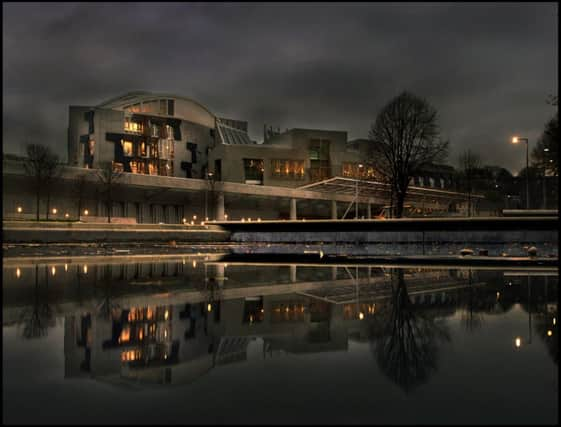Leaders: A nation divided is reunited in grief


It’s been a long time since Scotland needed such a ceasefire so badly. But, then, we don’t see many years like 2014.
The independence referendum dominated national life throughout the year and, as September’s poll drew closer, divisions became deeper.
Advertisement
Hide AdAdvertisement
Hide AdDebate grew increasingly confrontational and shone a light on a country cracking under the strain.
Too often, political differences spilled over into recrimination and it seemed Scotland would need time to recover from the experience, regardless of the result.
So we welcome calls from Scotland’s opposition leaders for the country to leave the divisions caused by the constitutional battle to wither and die in the year soon to pass.
Scottish Labour’s new leader, Jim Murphy MP, knows as much as anyone about political differences turning personal: at every stage of his referendum tour of Scotland, Yes voters turned up to remind him how easily that can happen.
But, though he might be a bogeyman to some, few, surely, would disagree with his call for politicians across the spectrum to unite in tackling poverty and dependence on food banks.
CONNECT WITH THE SCOTSMAN
• Subscribe to our daily newsletter (requires registration) and get the latest news, sport and business headlines delivered to your inbox every morning
Nor would many reject Liberal Democrat Willie Rennie’s praise for the referendum as an example of democracy, even if the democratic result might not have suited everyone.
Conservative leader Ruth Davidson was right to identify that the referendum had been, at times, a “painful” political experience for the nation. Though the result, in the end, was a 55-45 victory for the No campaign, more than one and a half million Scots were left desperately disappointed. For many, referendum defeat came after many years of campaigning.
Advertisement
Hide AdAdvertisement
Hide AdAs Ms Davidson said, the referendum divided not only the country and communities, but families too.
If we required a reminder that such divisions are pointless, it came on Monday afternoon in Glasgow. In a few seconds, six lives were gone, and many more changed forever.
Political leaders of all hues stepped up to speak on behalf of the nation in the aftermath of the terrible accident that occurred when a refuse lorry appeared to run out of control.
We would have wanted those politicians to say exactly what they did about the dedication of the emergency services, wouldn’t we?
And when they offered their sympathy to those injured and bereaved by the accident, that’s what we’d all have said, too, isn’t it?
It has been a difficult year for Scotland, but the tragedy which brings 2014 to a close reminds us that the humanity that binds us is stronger than the division sometimes caused by politics.
End male control of public boards
ON taking office, First Minister Nicola Sturgeon spoke of her pride in becoming the first woman to hold the position. If she could achieve this high office, said Ms Sturgeon, then no girl in Scotland should grow up thinking that she couldn’t realise her ambitions.
But while it is certainly true that Ms Sturgeon’s promotion marked a significant symbolic moment in the quest for real equality in that workplace, it did not signify the solution of a deep-rooted problem had been found.
Advertisement
Hide AdAdvertisement
Hide AdAt the top of the business world, men continue to greatly outnumber women. And it is not just in the private sector that this is the case. Almost two thirds of the members of public boards are male.
Ms Sturgeon has quite a task ahead of her if she is to make the significant culture change required to ensure that male dominance of boardrooms becomes a thing of the past.
Research carried out by Napier University on behalf of the Scottish Government found that a significant problem in the private sector is that existing board members appoint “those in their own image”, which means men hiring men.
Ms Sturgeon doesn’t have the authority to change things overnight in the private sector, but she has the power to correct the gender imbalance on public boards and this she should do, as soon as it is practical.
Successive first ministers have spoken of their support for gender equality, but progress has been slow. Perhaps, now with a woman is at the top and driving this agenda, we may see real change.
SCOTSMAN TABLET AND IPHONE APPS